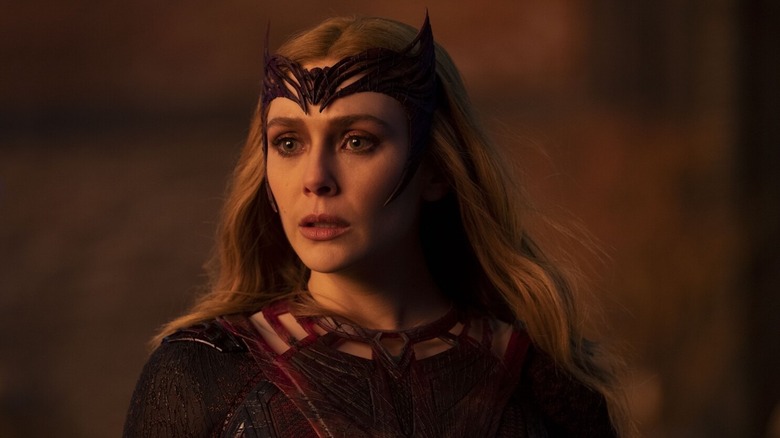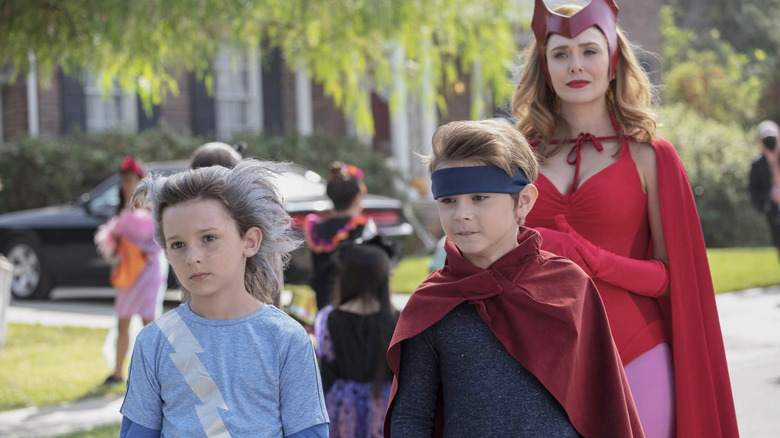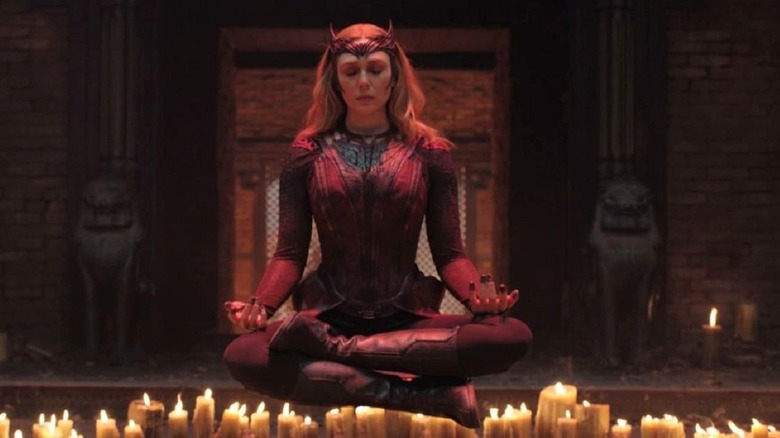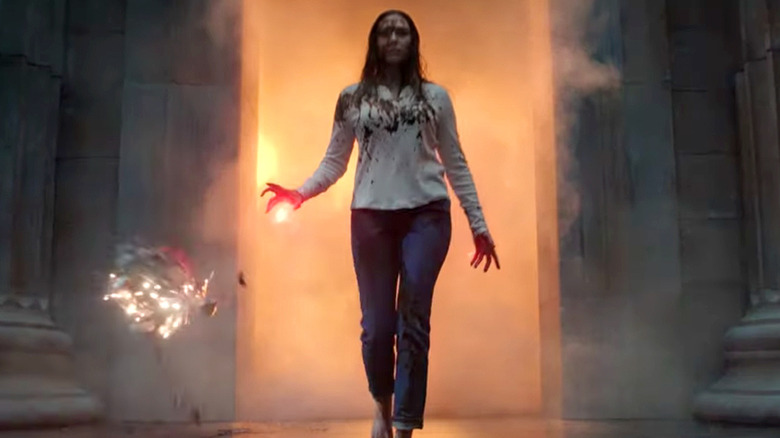Did Marvel Just Pull Its Biggest Punch With Wanda — Or Are They Planning Something Bigger?
There will be spoilers for "Doctor Strange and the Multiverse of Madness" in this article.
Wanda Maximoff, known by her nom de guerre as the Scarlet Witch, is one of the most powerful characters in the entire Marvel Universe. In the 616-universe (the comic book 616 universe, not the cinematic 616-universe) she was believed to be the daughter of Magneto and is the twin of Pietro Maximoff — Quicksilver. She has unnaturally strong magical abilities and can rewrite reality itself.
Using a spell to alter reality, she fashioned a pair of twin boys to form a family with her husband, the android Vision. When the spell broke, her boys vanished, and Vision was dismantled, trauma took over for Wanda and her grip on reality became tenuous. When trauma and mental illness mix with the ability to control reality, bad things can happen. Professor Charles Xavier did what he could to keep her sedated, but a gathering of heroes of Earth had to decide her fate and thought that a mercy killing might be in order. But Wanda snapped and altered reality completely, creating an entirely different universe where the House of M reigned. The superheroes who could remember their previous realities fought back against Wanda and she changed reality once more, whispering, "No more mutants..." This single act rewrote the entire 616-universe and mutants became a scarcity.
For many years, Wanda rejoined the Avengers, haunted by her actions and seeking redemption to set right the things she'd done.
The fact that she could snap in a moment and rewrite reality is proof of her ultimate power.
WandaVision
In the Marvel Cinematic Universe, some of these events have definitely come to pass. In the television show "WandaVision" on Disney+, Wanda definitely grapples with the grief of Vision's death by retreating into a fantasy world of her own making. Naturally, she created her twin boys and fell in love with being a mother and wife in her idyllic television life.
This all came crashing down as Wanda began to realize what harm she had caused the citizens of Westview that she had trapped into playing parts in her world. Agatha Harkness, a powerful witch, came to take her power, but Wanda defeated her and retreated to the woods where she acquired a copy of the Darkhold — an unspeakably evil book full of spells for dark magic that come at a cost.
Marvel's producing brainchild, Kevin Feige, has often said that the comics are the north star for the cinematic universe. In a Reddit AMA, he said that one of the cornerstones of Marvel's success on the big screen was to, "Respect the source material."
Knowing this, many fans had specific ideas of what might come next for Wanda. Would we see this as a way to bring the X-Men and Fantastic Four universes colliding into the cinematic 616 universe? Would Wanda break things before going on a tour of redemption, rejoining the Avengers? Would Wanda be allowed to process her grief and find forgiveness for the things she had done?
Fans needed to wait and see until we got to "Doctor Strange and the Multiverse of Madness."
The Multiverse of Madness
"Doctor Strange and the Multiverse of Madness" casts Wanda as the de facto villain of the story. Her drive to invade the multiverse in order to find a reality where she can be with her children is an overriding goal that has taken over every bit of good sense that Wanda has. Doctor Strange and America Chavez fight across the multiverse to try to stop her before she can bring multiple realities crashing down around them.
As Wanda takes increasingly destructive steps toward reuniting with her children in a different universe, the very fabric of reality is threatened. The film casts Wanda as the big bad, putting her on par with Madds Mikkelsen's Kaecilius in the first Doctor Strange film. Granted, Strange approaches Wanda with more empathy in this film, he gives her a chance to right the wrongs she's committed against reality on her own. The film ends in a neat and tidy bow, with Wanda having apparently died in a noble, self-sacrificial bid to destroy every version of the Darkhold across every plane of reality in the multiverse so that no one can misuse it again. Sure, it's heroic, but the status quo of the reality-bending multiverse is reset back to the cinematic-616 status quo at the end of the film.
Like a sitcom, it feels as though nothing has changed and the universe goes back to normal.
Pulled punches or more to come?
With the long history of Wanda in the comics, this very much feels like it was a pulled punch in the grand scheme of things. Kevin Feige and the braintrust at Marvel had the opportunity to do something world-shattering with Wanda on the board and instead reset back to its pre-multiverse normal.
But with "WandaVision" mirroring a sitcom, maybe there's a method to their "Madness." Have they pulled a punch? Or do they really have bigger things planned for Wanda as the Marvel universe rolls forward into its fourth phase? There is no reason to think that Wanda absolutely died destroying the Darkhold across the multiverse, and there's nothing that says that she killed every iteration of herself. There are still plenty of opportunities for Marvel to bring her back and respect Wanda's source material, giving her something to do to shake things up even further. If not, this "Multiverse of Madness" will end up as nothing more than a discrete adventure that doesn't add to the larger whole, no matter how entertaining Sam Raimi made it.
"Doctor Strange and the Multiverse of Madness" is in theaters everywhere now.



